Battery packs can not only power vehicles but also boats. Electric boats include:
- yachts,
- small cruise ships,
- motorboats,
- scenic sightseeing boats,
- small and medium-sized cargo ships,
- electric law enforcement vessels for the Coast Guard,
- and even heavy and commercial vessels.
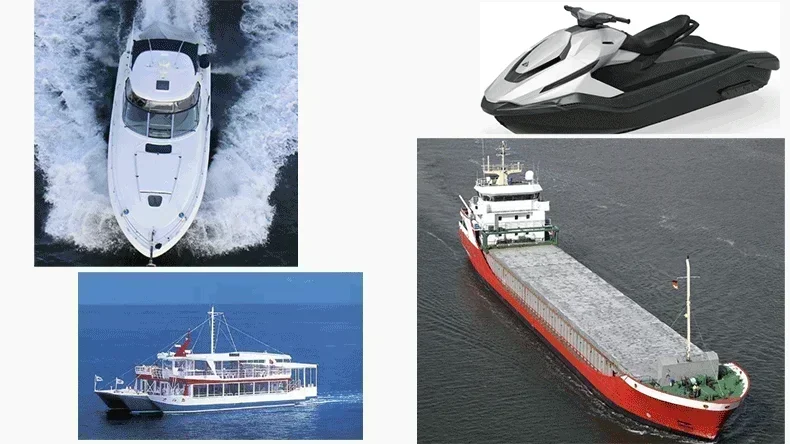
How do you make a lithium battery pack for powering an electric boat? You will need:
Lithium-ion cells: The batteries are standard and are allocated by the designer in modules. The cells in the same module are in series, and the groups are connected in series and parallel.
Battery management system (BMS): The brain of the battery pack, analyzing, managing, and controlling the cells and communicating with the boat. A BMS can be standard or tailored.
Cell contact system (CCS): Also known as the cell connecting system, it is the fast and slow charging path to the cells and reports their voltage and temperature changes to the BMS. A CCS is tailored.
The structural parts: The enclosure, cooling structure (thermal path), modular structural parts, shock-absorbing pad, waterproof O-shaped ring, and exhaust valve.
PCBONLINE provides EMS electronic manufacturing services to both custom CCS and BMS for boats, including their R&D. This article focuses on the battery management system for boats.
Is the Battery Management System for Boats Standard or Custom?
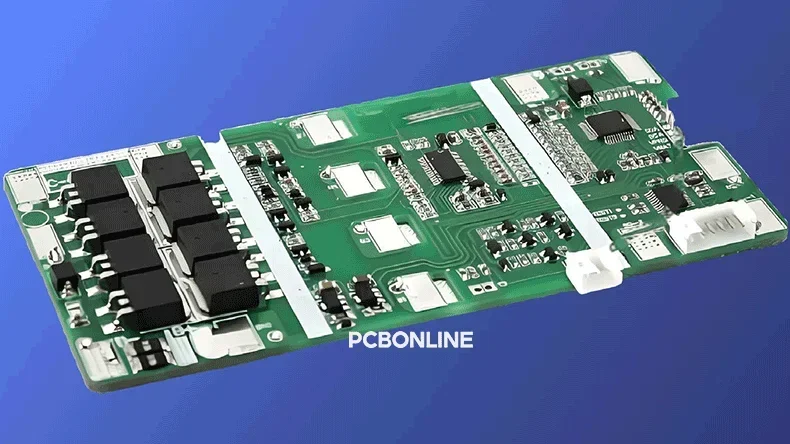
First, let's answer this question:
The battery management system for electric boats is custom or half-tailored from the secondary development of a standard BMS.
The standard battery management system is the finished modular BMS in the market. Although they are convenient to use directly, their applications are limited because they can't satisfy commercial application demands.
The standard BMS is only used for scenarios with a simple structure, low voltages, and low requirements in controls, such as 48V/60V/72V electric two-wheeler/three-wheeler bikes and home/portable energy systems smaller than 60V.
Regarding electric boats, standard BMS is rarely used directly, as it only provides basic functions of overcharge, overdischarge, and overcurrent protection. Standard BMS is only used for unmanned boats and small electric boats meeting such conditions:
- Low-power and near-shore (48V, 2KWh-5KWh),
- No grid connection and no classification certification,
- Require only basic protection functions,
- No parallel connection, no current and signal collection, and no communication.
The battery packs of electric boats are usually high-voltage (>60V) and large-capacity (> 10 kWh). Thus, their battery management system must be custom and a highly reliable industrial-grade BMS.
Functions of the Battery Management System for Boats
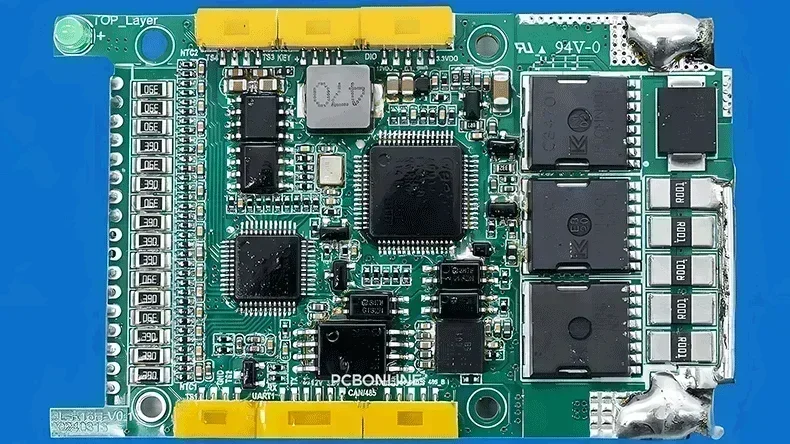
The BMS is the brain of the battery system. The functions of a battery management system for boats are:
- Monitor the battery pack currents by sampling the currents at the main circuit,
- make control decisions based on the main circuit currents,
- process the cell data reported by the cell contact system to achieve state estimation (SOC/SOH),
- thermal management,
- balancing control,
- fault protection,
- communication with the whole boat.
How does the BMS for boats work in decision-making and execution?

In a battery pack, the BMS and the CCS work collaboratively.
The CCS is responsible for the physical connection (series and parallel) of the battery cells in the battery module and the real-time collection of single-cell voltage and temperature signals. It is the direct collection layer of battery data.
The CCS transmits the real-time voltage and temperature data of the battery cells to the BMS through integrated sensors and acquisition circuits.
Besides, the BMS connects the main circuit of the CCS to sample the total battery currents.
After analyzing the data of the total battery and different cells, the BMS dynamically adjusts the charging and discharging strategy, triggers balancing or thermal management (such as the cooling system), and controls the on and off of the high-voltage circuit through the CCS relay.
Requirements for Battery Management System for Boats
A battery management system for boats should be highly reliable and industrial-grade. Its design and manufacturing are custom and meet the requirements below.
High-voltage and high-current capacity: The BMS monitors, protects, and controls the battery pack by sampling the main circuit and controlling the main relay. As the main relays located in the main discharge path and the main charging path are high-current components (hundreds of amperes of current), and the BMS directly samples currents of the main circuit, the BMS also has to withstand large currents.
Thus, the BMS for boats has copper busbars in a large area to connect the CCS main circuit and main relays, supporting dozens of amperes of current to flow through.
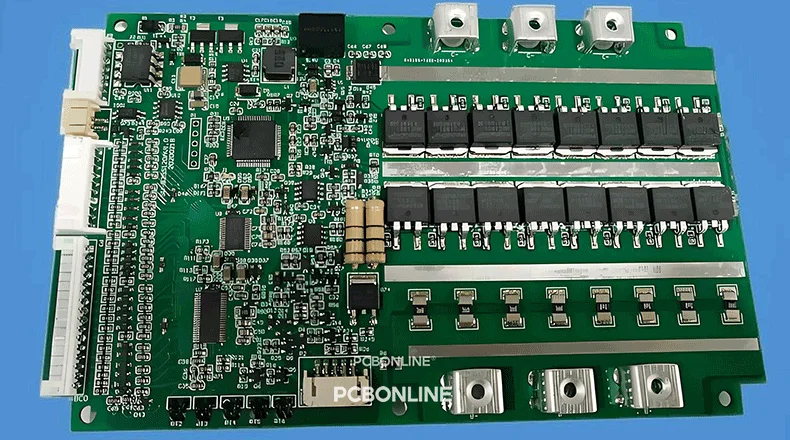
High safety requirements: As a boat travels on the rivers, lakes, and seas, the risk of fire or failure is extremely high. So the BMS for boats needs to have functions to ensure safety, including abnormal alarm, fire warning, battery thermal runaway detection, and insulation detection.
Supporting communication: The BMS needs to communicate with the energy management system or propulsion control system, so it uses CAN (Controller Area Network), RS485, or Modbus protocol to communicate. Besides, the BMS for boats may need to allow remote maintenance, so it will also integrate GPS, 4G, or 5G for long-distance communication.
Waterproof, vibration-proof, and salt spray proof: All the electronics for boats work in the environments of moisture, vibrations, and salt spray. Conformal coating can be applied to the BMS, and dam and fill encapsulation can be poured over and around the critical components mounted on the PCB of the BMS.
Redundancy protection strategy: For safety, the BMS for boats should have dual MCU/circuit breaker redundant control. The battery pack for electric boats belongs to high-power, high-voltage, and high-risk applications, so its BMS must not only work but also not fail. The redundant design ensures the system can maintain a minimum operating state or safely shut down power even when primary control failure occurs.
Meeting quality certifications: The BMS for electric boats, especially the industrial, commercial, and port-grade boats, should meet the functional safety standards from ISP/IEC, including ISO 26262 and IEC 61508. Besides, the BMS for boats should meet certification by classification societies in the country.
The classification societies include China Classification Society (CCS), Det Norske Veritas (DNV), American Bureau of Shipping (ABS), Bureau Veritas (BV), Lloyd's Register (LR), Korean Register, Nippon Kaiji Kyokai, Registro Italiano Navale, Russian Maritime Register of Shipping, and Indian Register of Shipping. The top five classification societies winning the most global recognition are CCS, DNV, ABS, BV, and LR.
BMS Manufacturer with R&D Capabilities for Custom Battery Management System for Boats
If you want to develop and manufacture a BMS for boats and even the entire battery pack custom needs of an electric boat, work with the one-stop BMS PCBA manufacturer PCBONLINE.
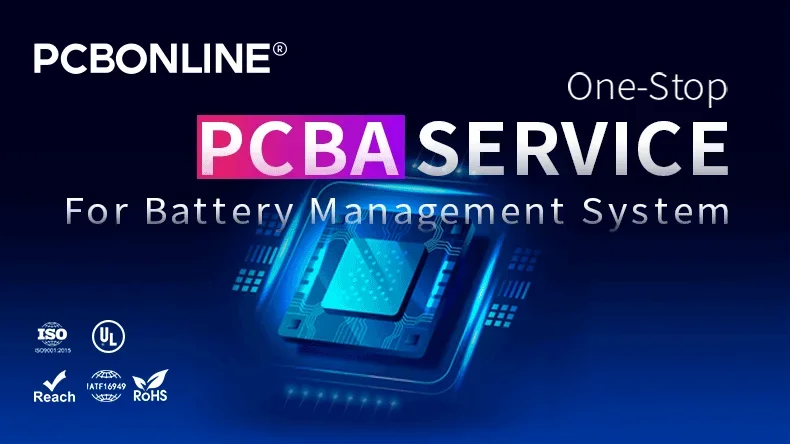
PCBONLINE is a source factory manufacturer, with two large advanced PCB manufacturing bases, one PCB assembly factory, reliable supply chains, and an R&D team for BMS development.
PCBONLINE can help develop a custom BMS for boats according to the R&D requirements provided by you, providing a full set of BMS R&D and design services, including hardware, software, structure, etc.
As a source factory for BMS, PCBONLINE can provide complete certifications. Whether the BMS is industrial or commercial grade, we can match your target price. Bulk orders support installment payments.
Support quality traceability, and the default period for PCBONLINE's custom BMS and CCS for battery packs is 5 years.
PCBONLINE offers free prototyping/sampling and PCBA functional testing for BMS massive production and can solve all issues to ensure smooth processes and successful results.
To get a quote for your BMS project for boats and even the entire battery pack, please contact info@pcbonline.com. Besides BMS, PCBONLINE can also manufacture the
Conclusion
The battery management system for boats plays a vital role in the battery pack and the entire ship. It monitors and manages the operating status of the battery pack to ensure that the electric boat operates safely, stably, and efficiently. If you want R&D and custom battery management system manufacturing for boats, contact the one-stop BMS manufacturer PCBONLINE by email or online chat.
Battery Management System Manufacturing at PCBONLINE.pdf
CCS Product Introduction - PCBONLINE.pdf




